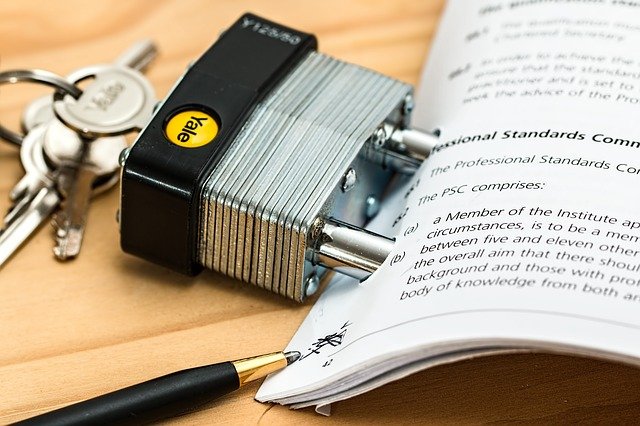Attorneys
The Houston personal injury lawyers at Houston Injury Lawyers, P.L.L.C., understand how devastating an unexpected personal injury can be for any family. Our team has years of experience providing comprehensive and client-focused legal representation in a wide range of personal injury claims.
Privilege
With the rise of the internet and social media, much discussion has taken place over the years about how far Privilege extends. This blog will discuss what attorney-client Privilege is and what is subject to Privilege. As such, the rules are binding, and the American Bar Association has more information about Privileged information.
The blog on the A.B.A. website stated that “The American Bar Association House of Delegates approved a host of new policies on Feb. 6, including for the first time endorsing both a binding code of judicial ethics on justices of the U.S. Supreme Court and “reasonable and appropriate” federal government efforts aimed at combating money laundering.”

Texas Rule of Evidence 503
It is essential to understand what attorney-client PriWhen multiple people are in an incident that creates injuries; a lawyer must be conscientious before visiting with potential clients and other retained counsel for parties. Texas Rule of Evidence 503 governs the attorney-client Privilege.
Confidential communications between clients and counsel to facilitate legal services private from disclosure. It is the oldest Privilege under the common law, but it is not an absolute privilege. There are four core elements necessary to establish the existence of the Privilege:
- Legal advice of any kind.
- From a lawyer or their qualified representative (think Paralegal) in their capacity as such.
- The communications must relate to legal advice.
- Must be made in confidence (not where third parties overhear it);.
- The client must make it.

Here are some common scenarios and how the Privilege may apply:
Allied Litigants
Allied Litigants – this is generally seen in a scenario where one party may file a lawsuit against several different defendants for the same injury—as such, alleging that each party played a part in causing the damage. In comparison, the attorney-client Privilege protects communications made by a lawyer. Or a representative representing another party in a pending action. But only if the communications concern a matter of common interest; this limit is not absolute. In fact, in a scenario where the information sought is from a person or entity, not a party to the case. As such, this can limit the attorney-client Privilege. Also, if there is no pending action, as required by the rule, this may work to limit any claim of attorney-client Privilege.
Law Firm P.L.L.C. v. United States
Internal Revenue Service – Death and Taxes! One interesting case out of the Fifth Circuit, Taylor Lohmeyer Law Firm P.L.L.C. v. United States, No. 19-50506, 2020 WL 1966844 (5th Cir. Apr. 24, 2020), cemented that where the I.R.S. has a taxpayer under investigation, a law firm could not invoke the attorney-client Privilege to quash summons by the I.R.S. seeking the identities of a firm client. The Privilege was not permitted to circumvent compliance with the subpoena. However, the Privilege may have protected the disclosure of specific documents.
Expert Witness
Expert Witness is Client – Under Texas law, any document provided to a testifying expert in anticipation of their testimony must be disclosed to the other side, regardless of whether or not the expert relied on the paper. Every document provided to a testifying expert must is declared, even if otherwise protected from disclosure. However, the exception is if the expert witness is also a client. Conversations with counsel and the adjuster may still maintain their Privilege.
A. Testifying Expert Witnesses – Rule 195. The basic rule is that the only three ways to discover information about testifying expert witnesses are through a Request for Disclosure under Rule 194, depositions, and expert reports. Rule 195.1 states the following:
A party may request another party to designate and disclose information concerning testifying expert witnesses only through a request for disclosure under Rule 194 and through depositions and reports as permitted by this rule.
Communications
Certain Attorney Communications: Courts in Texas have held that it is privileged where a communication relates to legal advice. For example, even communications with corporate client employees concerning investigating an accident to enable the lawyer to defend the client in litigation may be privileged. However, an email from a lawyer to a client regarding trial or hearing settings (date, time, and location) is not confidential.
The Big Five
Five types of communications in Texas explicitly are not protected under the attorney-client Privilege. We would be remiss not to include these in any conversation about the attorney-client Privilege. It is essential to understand that attorney-client Privilege is not absolute. In these situations, one should not expect their discussion with the attorney to be forever protected.
Fraud
Communications made in furtherance of a crime or fraud – communications about past crimes or fraud will be protected and not be privileged. It is never a good idea to ask an attorney how to destroy or conceal evidence, conceal income, or assets. Or request an attorney to present testimony that the lawyer knows is false.
Communications relevant to an issue involving claimants
Communications pertinent to a problem involving claimants through the same deceased client are classically relevant to a case involving the same deceased client in a will contest. As such, two parties may be fighting over the intent of the dead.
Duty
Breach of Duty by Lawyer to Client or vice-versa – a client and lawyer have a dispute as to whether or not the client or the lawyer breached a duty to the other, communications that may be relevant to show what assignment.
Communications relevant to attested documents – If the lawyer is a witness to a document (a will, contract, acts as a notary, etc.), communications pertinent to the lawyer’s attestation may be from the attorney-client Privilege.
Who can invoke Privilege?
In Texas Rule of Evidence 503(c) as to who may invoke the Privilege,
- The client;
- The client’s guardian or conservator;
- A deceased client’s representative; or,
- Whether or not the successor, trustee, or similar representative of a corporation, association, or other organization or entity exists.
The client controls the Privilege, but their lawyer may also claim the Privilege on the client’s behalf. The lawyer must be able to do so. There may be times in a deposition or the trial when the client may not understand the Privilege or how it applies, and allowing the lawyer to do so for the client protects the client’s interests.

(713) 366-HURT (4878)
Proving the legal elements with clear and convincing evidence is a daunting task. If you believe your case involves punitive damages, it is best to talk with a seasoned lawyer who handles cases involving these matters. Houston Injury Lawyers, P.L.L.C., can help you navigate this issue and answer any questions you may have if you want to speak to someone about your particular situation or for a free and confidential consultation. Call our office at (713) 366-HURT (4878) today or visit us online at www.houinjurylawyers.com. Se Habla español.
Houston Injury Lawyers, P.L.L.C.
We have the experience and resources necessary to guide you and your family through the civil court proceedings. Your injury claim will entail and help you approach the situation with great confidence and understanding.
Finding the right Houston personal injury lawyer to represent you is crucial to succeeding with your injury. Contact us to schedule a free case review and find out how our firm can assist in your recovery.
State of Texas
We take the time to listen compassionately to our clients and keep them informed throughout each step of the process.

